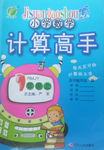题目内容
【题目】阅读下面材料,在空白处填入适当的内容(1个单词)或括号内单词的正确形式。将答案填写在答题卡的相应位置。
In order to know a foreign language thoroughly, four things are necessary. Firstly, we must understand the language when we hear spoken. Secondly, we must be able to speak it ourselves correctly with (confident) and without hesitation. Thirdly, we must be able to read the language, and fourthly, we must be able to write it. We must be able to make sentences that are (grammatical) correct.
There is no easy way to success language learning. good memory is a great help, but it is not enough only (memorize) rules from a grammar book. It is not much use learning by heart long lists of words and meanings, studying the dictionary and so on. We must learn by using the language. we are satisfied with only a few rules we have memorized, we are not really learning the language. “Learn through use” is a good piece of advice for those are studying a new language. Practice is important. We must practise speaking and (write) the language whenever we can.
【答案】it;confidence;grammatically;in;A;to memorize;their;If;who;writing
【解析】本文讲述的是在外语学习方面要注意的问题,以及学习语言最好的方法就是用。
⑴此处指前面提到的the language,所以答案是it。
⑵句意:带着自信,没有犹豫。介词后面用名词形式,所以答案是confidence。
⑶副词修饰形容词,所以答案是grammatically。
⑷表示在某方面成功用介词in。
⑸句意:一个好的记忆是一个大的帮助。所以答案是A。注意此处要用大写。
⑹此处是动词不定式作结果状语,所以答案是to memorize。
⑺句意:背诵一长串单词和它们的含义并不起很大作用。故填their。
⑻句意:如果我们只是对已经记住的几个规则感兴趣,那我们没有真正的在学习这门语言。所以答案是If。
⑼those指人,在定语从句中作主语,所以答案是who。
⑽practice doing sth.练习做某事,所以答案是writing。

 智能训练练测考系列答案
智能训练练测考系列答案 计算高手系列答案
计算高手系列答案